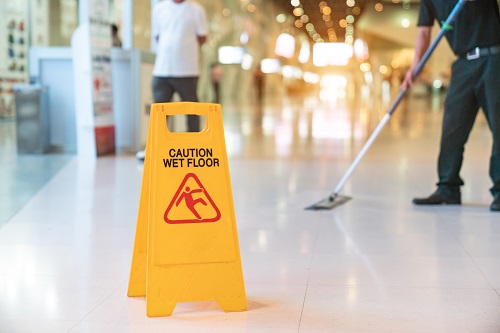Insights
Because it helps reduce the chance of;
- Your employees or others getting hurt,
- Being sued for negligence,
- Facing enforcement action for non-compliance with the law,
- Facing the huge costs associated with all the above.
What exactly is a near miss?
It can mean slightly different things to many organisations, but the core principle remains the same.
The definition given by the HSE is; “an event not causing harm, but has the potential to cause injury or ill health”.
So, something that has happened where nobody got hurt. Why bother reporting that? Because the only difference between an accident and a near miss is luck!
For example, somebody could have tripped over a trailing extension lead in the office and just stumbled. They would probably mutter a few expletives and there would be no other consequences.
Or they could’ve been unlucky, tripped over the trailing extension lead and fell causing a broken arm suffering pain and inconvenience and time off work.
It is the same “event” with totally different outcomes:
Outcome 1 – somebody got hurt and it’s going to be expensive!
If the person had broken their arm this would need to be reported internally and reported under RIDDOR (Reporting of Injuries Diseases and Dangerous Occurrences Regulations 2013) to the HSE.
The company would potentially be facing a compensation claim from the employee for negligence and even enforcement action from the regulatory body. The accident would need an investigation by the company to determine the immediate and underlying causes and remedial action taken to ensure the same thing does not happen again.
Outcome 2 – nobody gets hurt and it’s going to be cost effective!
If the near miss where the person had stumbled but not been injured had been reported. The company would have had an opportunity to find out why the cable was there and put in some control measures to either remove, re-route or protect the cable to prevent persons falling.
According to the HSE there are approximately 90 near miss events for every accident where harm has occurred. That is 90 opportunities to stop somebody getting hurt and potentially save a lot of time and money.
Reporting near misses is part of the wider management arrangements that need to be in place to satisfy the requirements of the Management of Health and Safety at Work Regulations 1999. It can be a very simple process but needs the full support of management and all employees.
How can Alcumus help?
Alcumus PSM’s expert health & safety consultants can advise on the best way to introduce near miss reporting into your organisation to ensure it is tailored to fit your exact needs and helps improve your safety performance.
Find out how Alcumus PSM can help you by emailing [email protected].
Alcumus PSM (People & Safety Management) specialises in human resources (HR) and health and safety (H&S) consulting for small and medium-sized enterprises.
Written by Steve Ross, Senior Health & Safety Consultant






